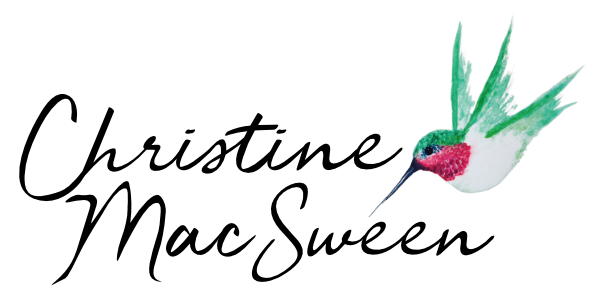Sexuality and Belief
First off, let’s get this clear. This post is not about bashing religion or religious upbringing. It is about having a conversation about the impact of beliefs and messaging in ways we may not expect. This is also a heteronormative story. Please know this topic can still impact the LGBTQ+ community. This is a story about my own personal experiences, and I also have a degree in Religious Studies, so these topics are of special interest to me personally and professionally. I didn’t know my Religious Studies degree would be relevant in physiotherapy, but I can’t tell you enough how relevant it has been!
I still remember the day I learned what masturbation was. I was standing in line for my First Reconciliation (more commonly known as confession). My mom stood beside me while I read the blue pamphlet.
The list went on and on and on. Many of the things I knew:
Don’t lie
Don’t be mean
Don’t kill someone
No sex before marriage
Yada yada. You get my drift. Then I came across, “Have you performed masturbation?”
Looking up at my mom I asked, “What is masturbation?” By the way, First Reconciliation usually happens around the age of 10. Mom shuffled her feet, looking around. Clearly, my question had struck a nerve. “It’s when…you…play with yourself.”
Horrified, I’m sure my eyes were bulging out of my head. “But I do that ALL the time.”
“Oh no! I mean…touching yourself…your private parts.”
My brain couldn’t quite comprehend this, and I remember thinking about it for YEARS. But we have to wipe down there, we have to clean ourselves. My tiny logical mind couldn’t compute. I didn’t realize she meant playing with/touching “private parts” for pleasure. I can’t say that I came from a family that was super conservative, although I know some of my friends thought I did. I never outright heard that I would go to hell if I had sex before marriage. However, messages like this are prevalent in religious communities. Whether it’s from within the family, friend groups, movies, books, the writings in pamphlets and posters that are found in the church. Even within Sexual Education. Some friends may not have been allowed to even attend, and frequently the message had to be abstinence first and foremost.
Sexual education. This is where I become opinionated.
Clear sexual education is vital for us to learn about an essential aspect of our lives and bodies. Even if you have no desire to ever be sexually active, or want to wait until marriage, you still have reproductive organs that are going be doing their processes. You still pee, poop, and have a pelvis that connects to your legs and helps transfer force while you walk. You still have a spine that connects your pelvis to your skull. Not to mention all the muscles and everything else that attaches to the pelvis.
The problem with not having a good sexual education is that people don’t know what to expect, how to prepare, or when something might be wrong.
So, what if you’ve been told, or received through messaging in your community, that you were never to touch your vagina, explore your body, or experience sex until marriage. If you attended sex education in school, all you heard were the bad things that could happen (teenage pregnancy, sexually transmitted infections). Sex becomes this dirty little secret. People are both fascinated and repulsed.
Now of course not everyone who is waiting until marriage is going to have this problem! But we see enough people who do, that it’s worth talking about. It’s worth learning, having the conversation and seeking help. It’s ok to feel embarrassed. It’s ok to not share everything with everyone. However, having a health professional that you trust and respect with whom you can talk about these things may provide the impetus for change that you require.
Why is this meaningful to you? And what is the role of physical therapy?
Sometimes we see people while they are pregnant as a check-in to learn the state of their pelvic floor muscles and strategies to prepare for birth. What if people could do the same prior to having sex for the first time? (Actually, we already do see these people, but it’s usually much farther along in their story.) I’m not suggesting every single person needs to see a physiotherapist before they have sex for the first time, but there are some common factors that may warrant an assessment.
Difficulty or pain inserting a tampon or cup
Difficult or painful gynecological exams
Fear of penetration, sex, or anything related to these (pregnancy, STIs, etc.)
Feelings of shame, disgust, or embarrassment about sex, genitals, etc.
Our beliefs, expectations, and fears have an impact on our bodies and how they function. Do you know that feeling of fear – deep in your gut? How your intestines twist, and your throat tightens? These are physical reactions to fear. One physical reaction is when the muscles of the vaginal wall contract in response to fear of penetration. Maybe it’s fear of letting someone in, or fear of losing control. What can develop is a condition we frequently see in our clinic called vaginismus. Vaginismus is a condition where a muscle at the entrance to the vagina acts as a guard. People may or may not experience pain, but there is difficulty with insertion, or even an inability to insert anything. So, my point is not that you need to throw your beliefs and values out the window. Rather, our goal is to give you a safe space where you can learn:
the anatomy of your genitals (whether it be vulva, vagina, clitoris, penis, scrotum, rectum, and the muscles that are involved)
strategies to help reduce or even prevent painful sex
the information you need to support the choices that are important to you
I love talking about these topics. When I was studying religion during my undergrad, I was fascinated by the similarities across religions. Common perspectives of the human body - especially our genitals – are that they are dirty, sinful, shameful, merely a tool, or something to escape. This plays a role in how we see and experience our bodies, whether we know it or not. I can’t count the number of conversations I’ve had with women about this. I don’t think I’ve ever had one where a woman couldn’t relate on some level.
When I told my father I was working on a blog post about vaginismus and religious belief, he was floored. He teaches about Catholic belief and traditions to other Catholics because there is a lack of education within his own community. He had never heard of something like this. He had never thought about the possible impact of belief on sexual function. It’s not necessarily the cause of the problem, but it can be a piece of the puzzle. I never thought I would have a conversation like this with my father, but I’m so glad I did, and he was appreciative and fascinated too. And maybe when we have conversations with children and adolescents about this, we can change our language too. We can seek information and have the difficult conversations. The more we can talk about this, and change the narrative around sexuality, the more those who feel alone can seek help.
This post was originally published on Vida Health & Wellness

